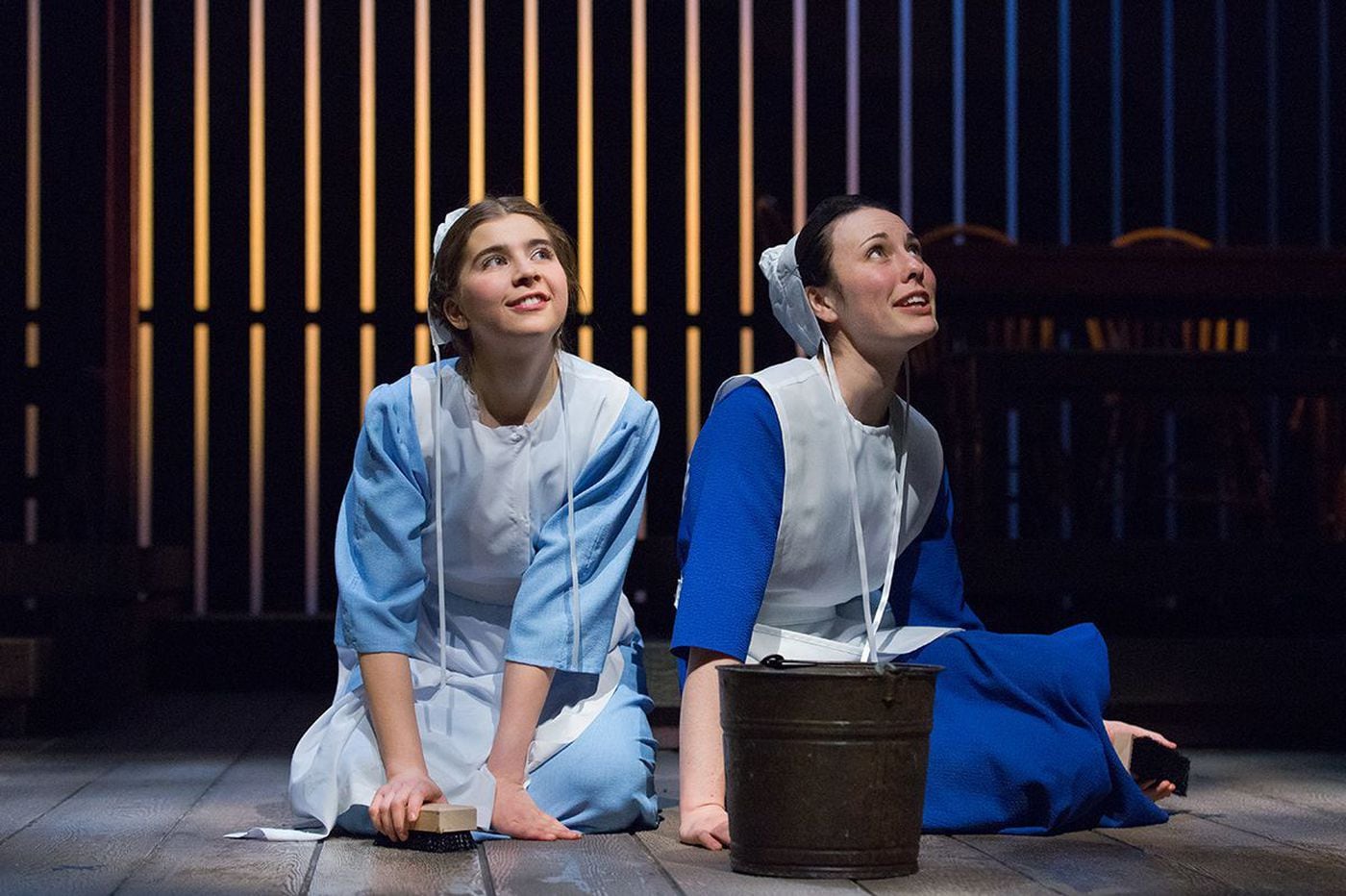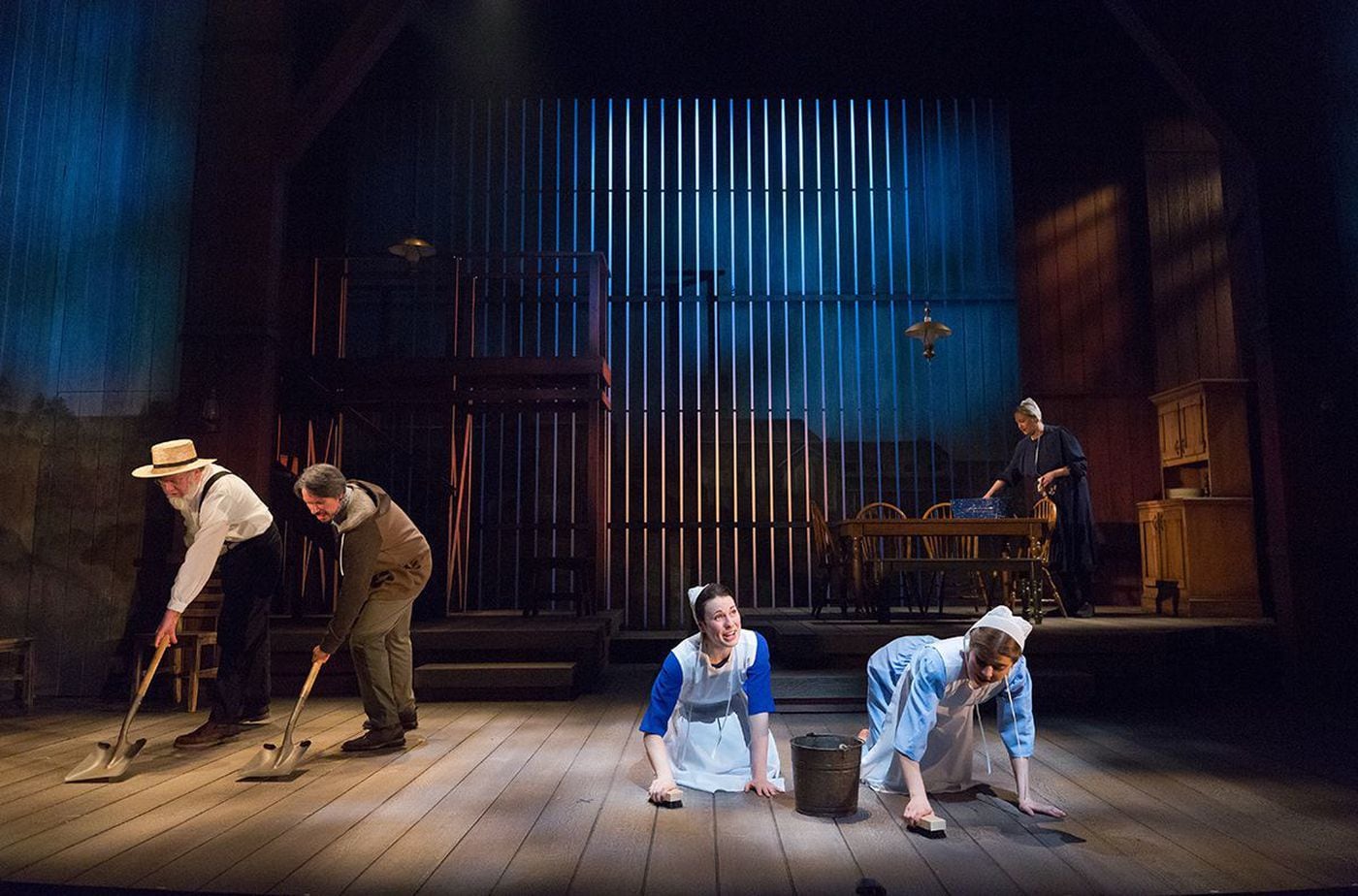by Cameron Kelsall | February 21, 2020

In Everything Is Wonderful, a beguiling new play at Philadelphia Theatre Company through March 8, silence permeates. Sometimes it cuts through a scene with the force of a freshly sharpened blade. Elsewhere, it hangs in the air like grief. Chelsea Marcantel’s exploration of tragedy and its aftermath is at its most eloquent in its quietest moments.
These moments reveal the true nature of the story. The word forgiveness is often spoken, and the drama’s structure resembles many similar traversals of a familiar, weighty subject. Eric (J. Hernandez), a wayward young man struggling with addiction, arrives on the doorstep of Jacob and Esther (William Zielinski and Blair Sams), an Amish couple whose two sons he killed in an automobile accident.
He demands the family press charges. Instead, they set a place for him at their table, alongside surviving daughter Ruth (Stephanie Hodge, whose performance brims with a gentle, unforced innocence).
The misfortune brings another lost soul back to the hearth, which scenic designer Daniel Ettinger renders with rustic authenticity: Miri (Katie Kleiger), Jacob and Esther’s eldest child, excommunicated five years before the events of the play began. She carries her own bone-deep trauma, the experience of which drove her out of the community and into the “English” world.
Despite the heavy price placed on absolution, Marcantel seems more interested in endurance and acceptance — far more interesting characteristics than the fetishized and commodified “F” word forgiveness.
Right up until a finale that represents the script’s one true misstep, the individuals depicted don’t feel much less wounded or weary than they did at the start. This is a daring choice, a decision to present life and pain not in some idealized manner but as it is often actually experienced.

This subtext penetrates the performances offered under Noah Himmelstein’s finely wrought direction. Hernandez, a local actor best known for his work in classical theater, brings the same sense of tragic weight to Eric that he does to Shakespeare. He also intimates that his character’s newfound enlightenment in the company of Jacob’s family, which momentarily allows him to find sobriety, may be fleeting.
Sams presents Esther as a woman who clings to the tenets of her faith and way of life because she might cleave in two without them. She also hints at a roiling within. Zielinski, with a slightly impenetrable Pennsylvania Dutch accent, shows how expectations placed on elder men in a rigid community caused Jacob to falter as a father.
But the production belongs to Kleiger. Beneath the contemporary costumes (by Janus Stefanowicz) that physically mark her separation, she staggeringly suggests the anger and hurt Miri feels at being wrested from a place she truly loved through no fault of her own.
Her charged interactions with Abram (Lucky Gretzinger), the young man who played a part in her departure, crackle with understandable indignation. Gretzinger projects a darkness beneath Abram’s nice-guy exterior.
The wrong that Abram perpetrated toward Miri, along with the community’s acceptance of his “confession,” once again points to how facile forgiveness can be.
Thankfully, Everything Is Wonderful wades much deeper than empty expressions of contrition. It shows the real work people from all walks of life must do to endure — quiet, faltering, human.
THEATRE REVIEW
Everything Is Wonderful
Through March 8 at Philadelphia Theatre Company, Suzanne Roberts Theatre, 480 S. Broad St.
Tickets: $25-69. Information: 215-985-0420, philadelphiatheatrecompany.org.






